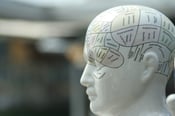 Anybody that reads this blog knows that we like to write about how mindset, effort, deliberate practice, proper study habits, organization and time management skills, strategic planning (and many other concepts that have more to do with “what you do” than “what you are born with”) are critical drivers of academic success. And, importantly, they are firmly under the control of any student. In our view, these concepts as a group easily trump IQ or talent when it comes to explaining success in and outside of school.
Anybody that reads this blog knows that we like to write about how mindset, effort, deliberate practice, proper study habits, organization and time management skills, strategic planning (and many other concepts that have more to do with “what you do” than “what you are born with”) are critical drivers of academic success. And, importantly, they are firmly under the control of any student. In our view, these concepts as a group easily trump IQ or talent when it comes to explaining success in and outside of school.
At the same time, we know that genes do matter. IQ is a metric that does help explain academic and other types of performance, and it is, for example, correlated with performance on standardized tests (even though I must stress again, hard work and structured practice will help you improve dramatically on standardized tests whatever your starting point).
So, is there a framework that can be used to think about the relationship between effort and talent in explaining academic and other types success? Which is more important?
It's a tough question, but while listening to a recent episode of the Psychology Podcast hosted by Dr. Scott Barry Kaufman, I think I may have found an answer.
 Numerous new studies show a promising link between good nutrition and optimal academic performance.
Numerous new studies show a promising link between good nutrition and optimal academic performance.

 Anybody that reads this blog knows that we like to write about how mindset, effort, deliberate practice, proper study habits, organization and time management skills, strategic planning (and many other concepts that have more to do with “what you do” than “what you are born with”) are critical drivers of academic success. And, importantly, they are firmly under the control of any student. In our view, these concepts as a group easily trump IQ or talent when it comes to explaining success in and outside of school.
Anybody that reads this blog knows that we like to write about how mindset, effort, deliberate practice, proper study habits, organization and time management skills, strategic planning (and many other concepts that have more to do with “what you do” than “what you are born with”) are critical drivers of academic success. And, importantly, they are firmly under the control of any student. In our view, these concepts as a group easily trump IQ or talent when it comes to explaining success in and outside of school. Have you ever met a child that knows a surprising amount of foreign languages. Has it ever amazed you how quickly a child can pick up new skills and learn new techniques? Turns out new evidence shows that children learn more and earlier than previously thought (Kuhl, 2011). However, at the same time, the rates of inattentive children in classrooms as well as the prevalence of learning disabilities
Have you ever met a child that knows a surprising amount of foreign languages. Has it ever amazed you how quickly a child can pick up new skills and learn new techniques? Turns out new evidence shows that children learn more and earlier than previously thought (Kuhl, 2011). However, at the same time, the rates of inattentive children in classrooms as well as the prevalence of learning disabilities The old adage “you can’t teach an old dog new tricks” has some interesting implications when applied to humans through the lens of something called neuroplasticity, which is essentially how malleable, dynamic and flexible the neurons (brain cells) in our brain are. This is directly related to the phenomenon of learning. Although, one must wonder when it comes to canines if sometimes the older dog truly can’t learn new tricks, or is simply just too old to care or try!
The old adage “you can’t teach an old dog new tricks” has some interesting implications when applied to humans through the lens of something called neuroplasticity, which is essentially how malleable, dynamic and flexible the neurons (brain cells) in our brain are. This is directly related to the phenomenon of learning. Although, one must wonder when it comes to canines if sometimes the older dog truly can’t learn new tricks, or is simply just too old to care or try! If you ask a random collection of people what is needed to be successful in school, you’ll probably receive quite a few responses along the lines of “hard work” or “a high IQ.”
If you ask a random collection of people what is needed to be successful in school, you’ll probably receive quite a few responses along the lines of “hard work” or “a high IQ.”